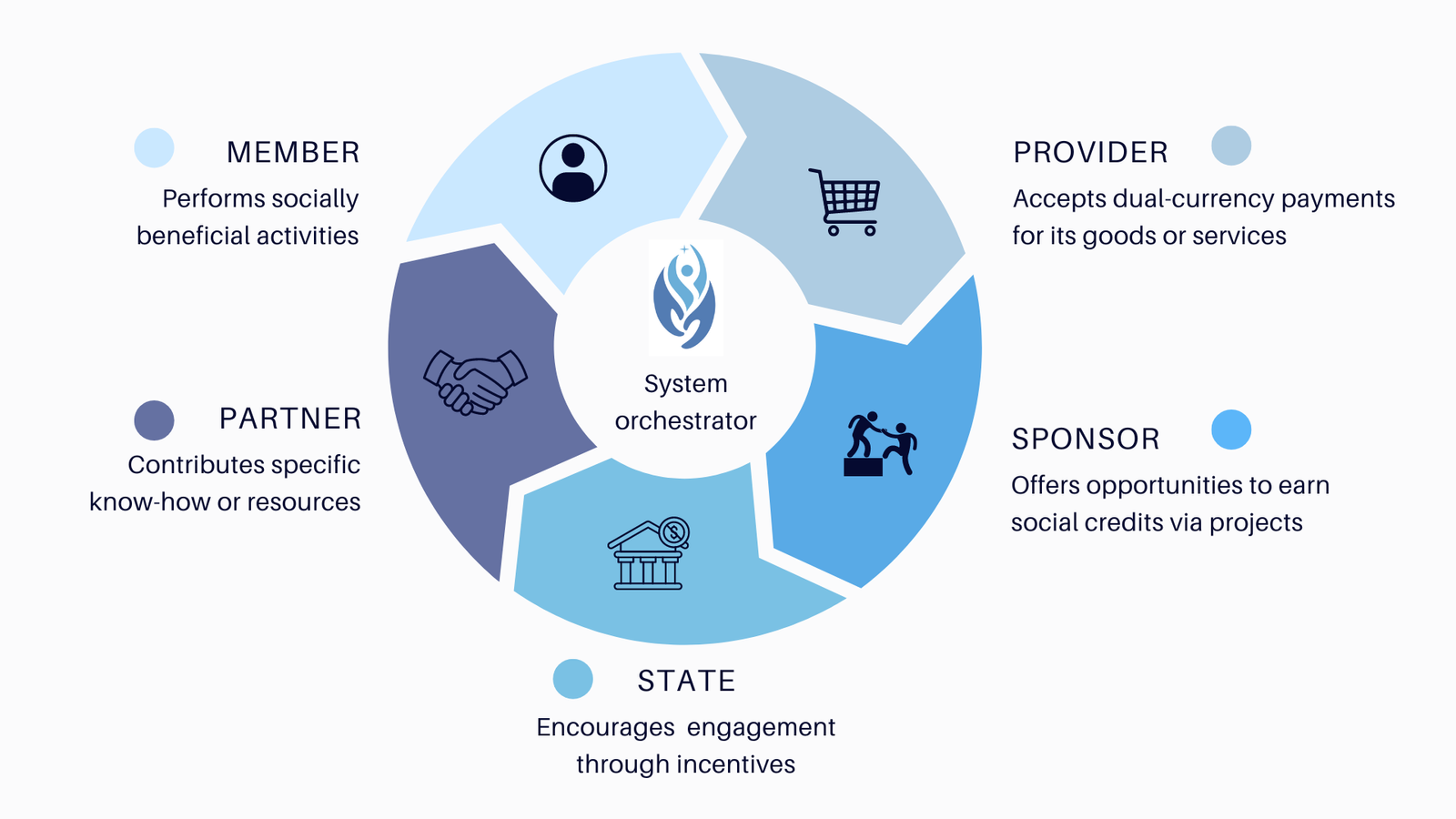Collaborative Partner Ecosystem


The Human-Centered Economy vision is implemented through engagement of multiple partners in a de-centralized ecosystem. The system dynamically interconnects a network of diverse players who create value in collaboration. Together, we deliver the value proposition of social justice, inclusion and increased economic power of individuals, businesses, and non-profit organizations.
Our ecosystem is self-governed and influence-based vs traditional systems of power, control or ownership. It is designed to provide incentives for cooperation through shared goals and values of its participants. In other words, when everyone contributes, everyone benefits from these virtual “commons”.



Members:
are individuals engaged in socially beneficial activities (community service, tutoring, care for elderly, child upbringing and more). As a result of their contribution to the ecosystem, they enjoy the following the benefits:
- increased purchasing power with social wealth credit rewards
- participation in the circular economy and waste reduction
- application of underutilized skills and experiences
- sense of self-worth through quantification of impact
Providers:
are businesses that accept dual-currency payments for their goods and services. Such structure allows them to cover their marginal cost of production, while providing an outlet for social wealth credit spending. The advantages of their participation are multiple:
- monetization of the existing excess production capacity
- growth in the customer base
- increased customer and employee loyalty
- tangible and measurable social impact.
Sponsors:
are organizations, associations and foundations that offer opportunities for Members to earn social credits by engaging in socially beneficial activities. Such activities are projects at the Sponsor organizations, including soup kitchens, skills contribution, blood donations etc. Numerous advantages are derived from being a part of the ecosystem:
- growth in the volunteer base
- improved quality control of voluntary contributions
- quantification of social impact for fundraising
- broader impact due to increased participation and reach.
Partners:
are businesses and organizations that bring specific know-how or otherwise support the ecosystem development in the areas of technology, finance, operations, education, marketing, logistics, communications and others. Their contributions to the system pay off in several ways:
- enhanced brand value and positive perception
- increased employee loyalty and engagement
- tangible and measurable social impact
- boost in CSR scores.
State:
includes public authorities, institutions and their affiliates (tax, unemployment, economic development, social affaires etc). They support the engagement with ecosystem’s stakeholders by providing incentives for participation. That in turn, contributes to the economic stability and social cohesion in the territory. Additional benefits of state participation include:
- growth in tax revenue through the monetization of excess capacity
- increase in voluntary business engagement in sustainable practices
- improved employability of idle workforce
- decrease in social budget needs.
In summary, all ecosystem stakeholders are rewarded for their contributions, as well as collectively contribute to creating a more sustainable, just, and equitable society.


Contact us
Global Social Enterprise
At Global Social Enterprise, your voice matters. Share your thoughts, join the team, or just say hello—we’re all ears. Drop us a line through our contact form and let’s enable the change together.
